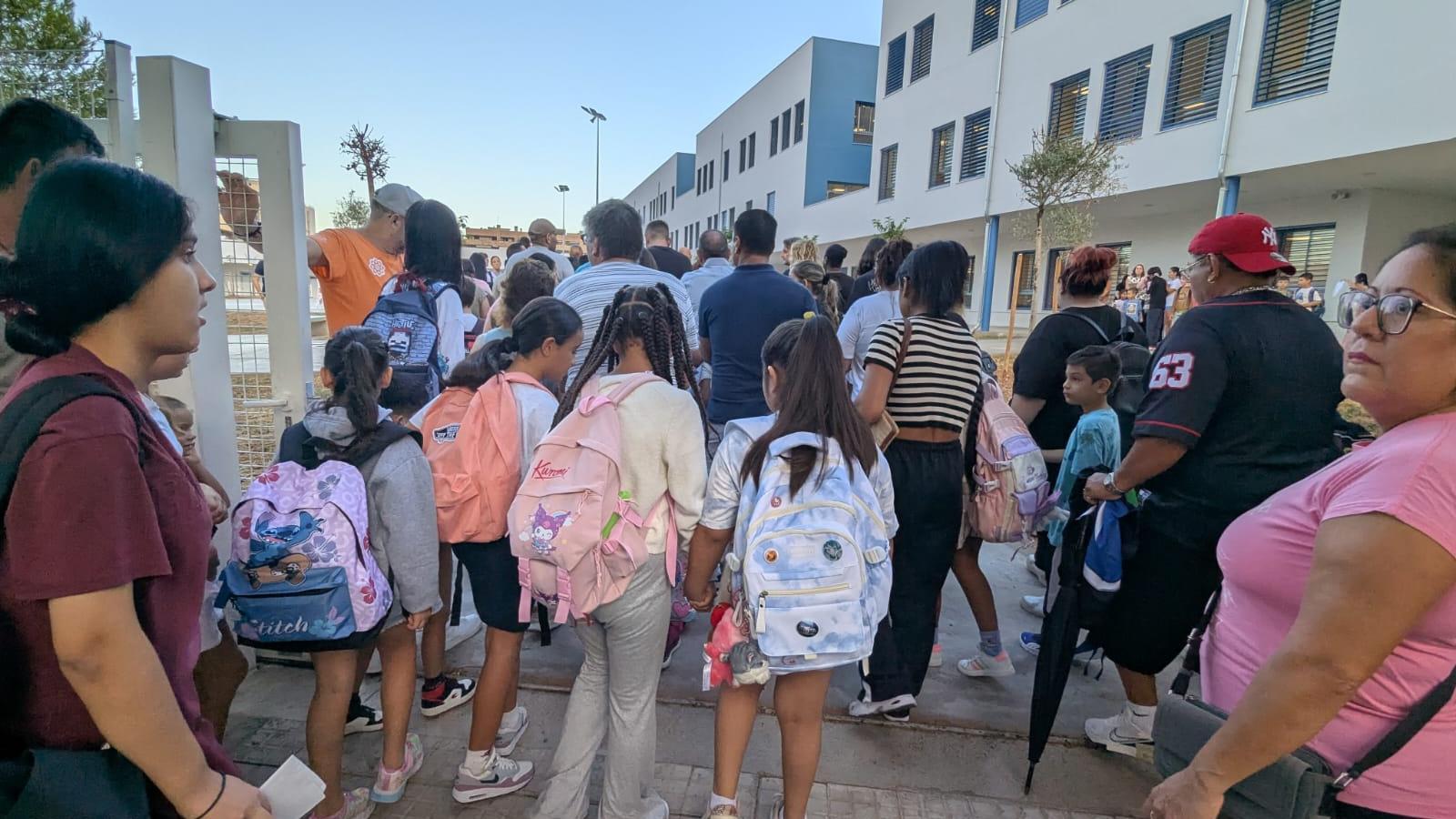The school year begins with more teachers, new infrastructure and a shift towards private education.
This Wednesday, 161,201 students return to the classroom, only 113 more than in the 2025-2026 school year.


PalmThe 2025-2026 school year begins this Wednesday with 161,201 students in preschool, primary, secondary, and high school, 113 more than last year. This is a significantly lower increase than the 1,183 students enrolled last year, a circumstance that can be attributed to the drop in the birth rate. Of these, 128,111 are in Mallorca; 12,559 in Menorca; 19,268 in Ibiza; and 1,263 in Formentera. The regional education minister, Antoni Vera, has acknowledged that, while the population has decreased in preschool and primary education, it has increased in 0-3 (+1,391) and (slightly) in secondary education.
The private schools that have gained students, and many, are those in the state-funded schools. 800 in Mallorca, 14 in Menorca, 64 in Ibiza, and 58 in Formentera (which has doubled its places): 936 students across the Balearic Islands. In Mallorca, the public school system has lost 459; in Menorca, 283; in Ibiza, 75; and in Formentera, 6. In total, 822 fewer students. The first school year entirely organized by the PP's Education Department (2024-2025) also saw a shift in favor of private schools. In 2024-2025It started with 488 fewer students in the public school and another 1,671 in the private school..
The number of teachers has increased again this year, with another 176 in public schools and 23 in private schools. Vera indicated that, since the beginning of the term, 1,122 staff have been added. For now, there are eight unfilled positions across the islands. During the same period last year, there were 117 unfilled positions.
Given the increased vulnerability of students, Education has also focused on increasing support staff. Public schools will have 451 guidance counselors (16 more), 24 new Educational Technical Assistants (ATE), and 34 additional support specialists. Educational psychologists have also increased. There will be 43 in public schools and 36 in private schools. The increase is due to the incorporation of teachers in the CEIPIESO (Primary Schools), whereas currently they only served schools with a secondary education stage.
New schools and infrastructure investments
Four schools are opening this academic year: Can Picafort Primary School (450 places), Ses Deveres Primary School in Caimari (225), Sant Miquel Primary School in Son Carrió (150), and Tramuntana Primary School in Palma (675), with almost 700 new places. This year, €95 million will be allocated to infrastructure. Notable projects include the construction of the new Maioris Secondary School in Llucmajor (€9.8 million), the expansion of the Sant Marçal Secondary School in Marratxí (€5.5 million), and the new school in Sa Pobla (€8.2 million). In Menorca, the Mercadal Secondary School (€8.3 million) and the renovation of the sports center at Maria Àngels Cardona Secondary School stand out. In Ibiza, the Es Faralló Primary School is being built (€9.5 million), and in Formentera, the Marc Ferrer Secondary School is being expanded. Thanks to these actions, it is planned to eliminate around twenty modular classrooms this year, out of the 159 still in use.
The limited price of school canteens remains in place for the current academic year: €6.85 for regular students and €7.55 for occasional students. The Regional Ministry is allocating €10.27 million to this service. Regarding aid for textbooks and teaching materials, €3.15 million has been allocated, benefiting a total of 296 schools.
A notable new feature this academic year is the inclusion of students with shared custody in the school transport service. They will be able to use different stops within the same route, provided that the school is included in the established itinerary. The school transport service, both regular and adapted, has an estimated cost of €26.5 million and serves approximately 18,600 students. Furthermore, starting this academic year, the consumption of energy drinks during school trips to public schools is prohibited. This measure is initially implemented through internal instructions, but will be officially incorporated into the upcoming school cafeteria decree, scheduled for the 2026-2027 academic year. This decree will also regulate food services for children ages 0 to 3.
